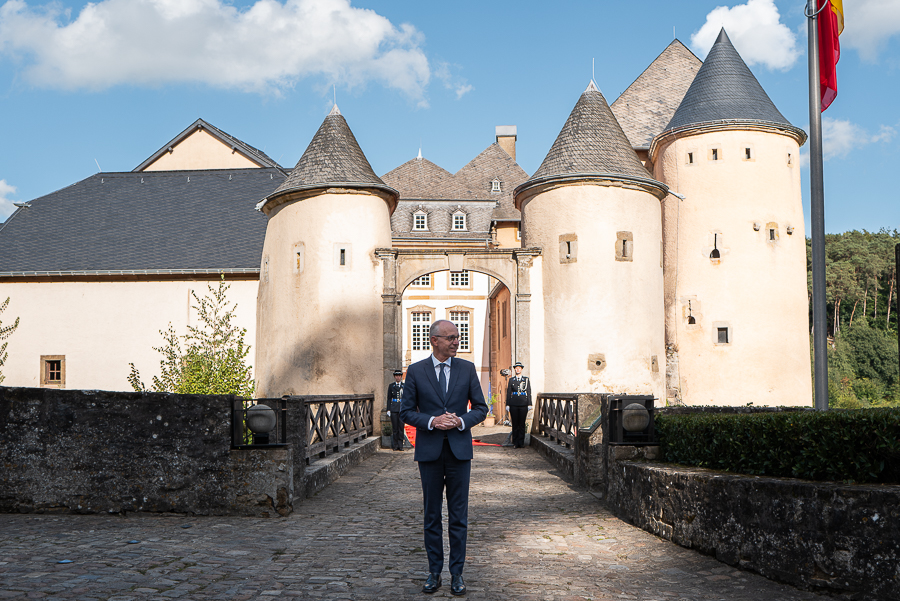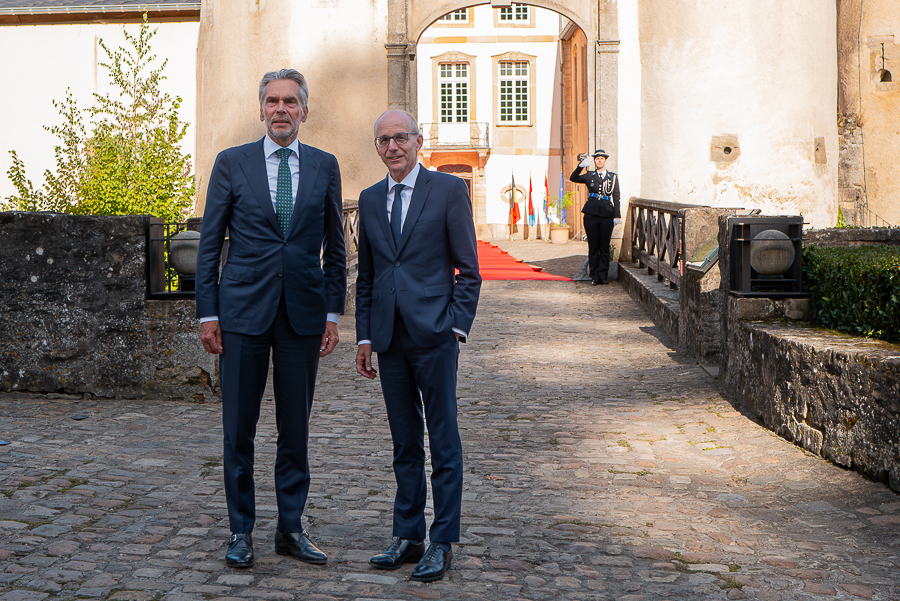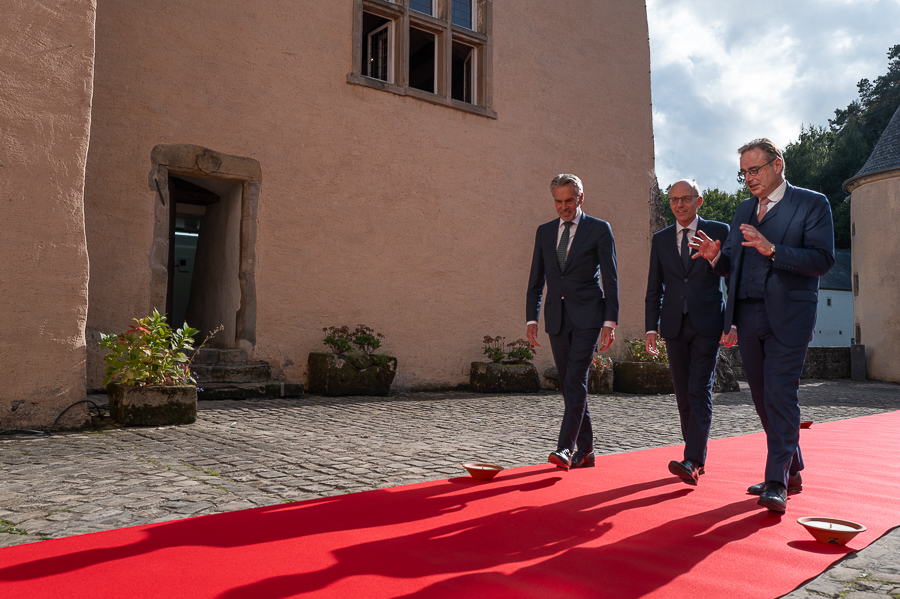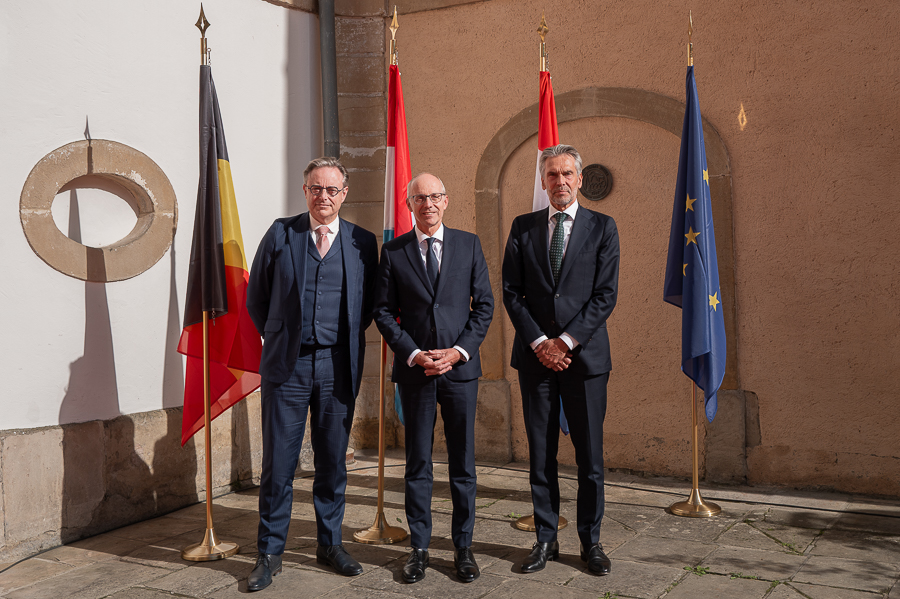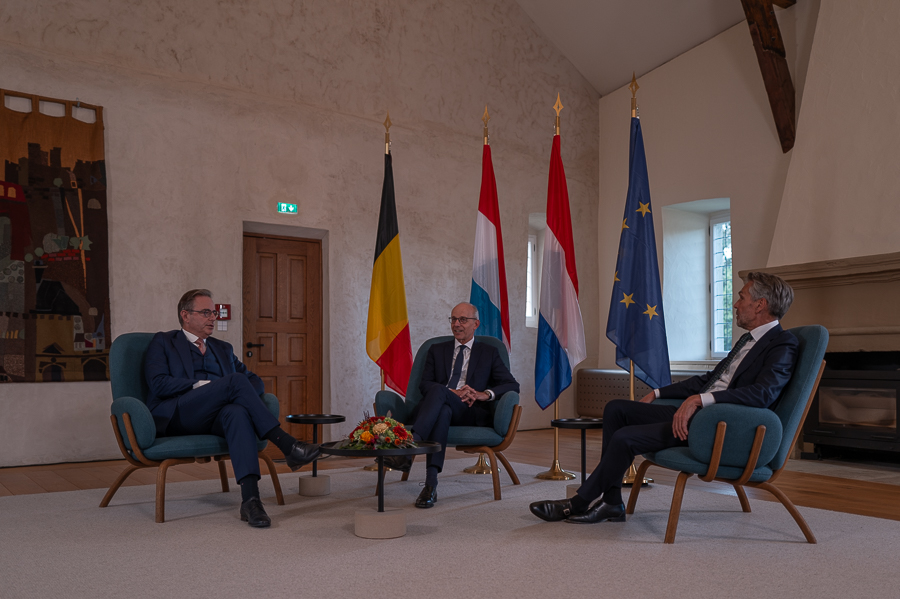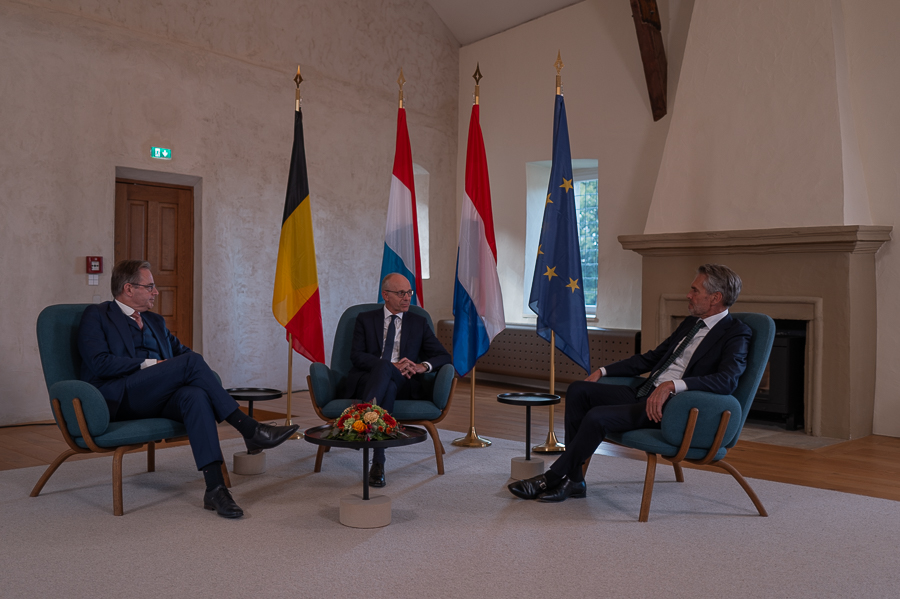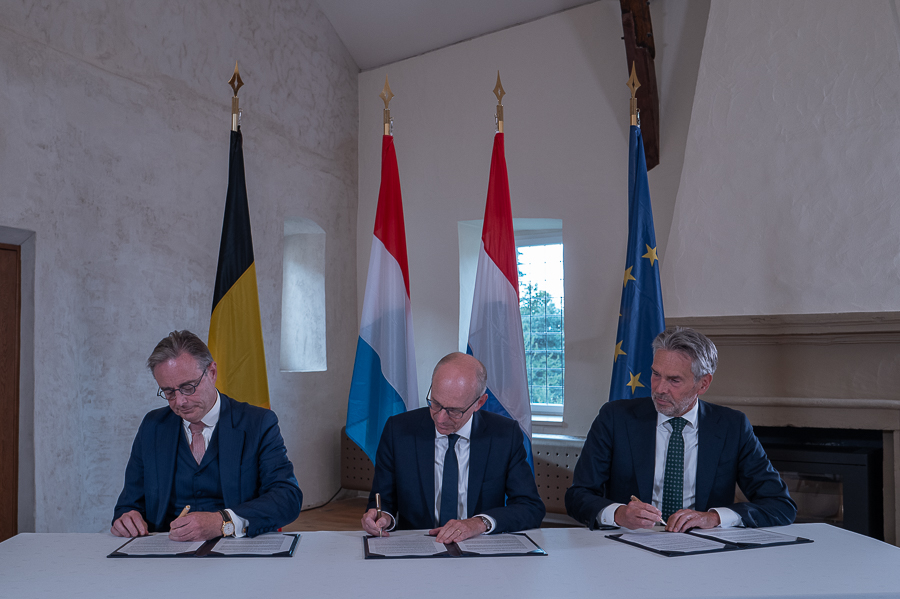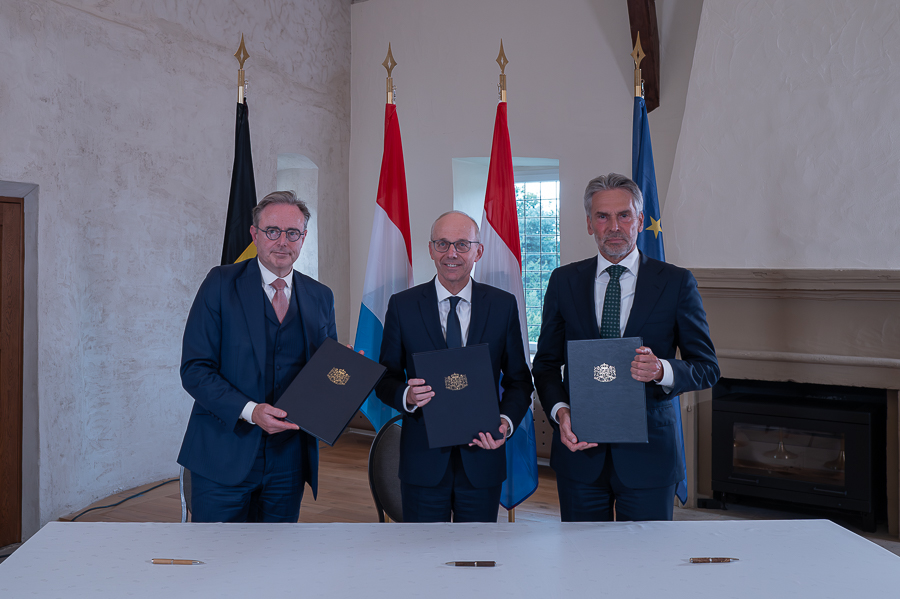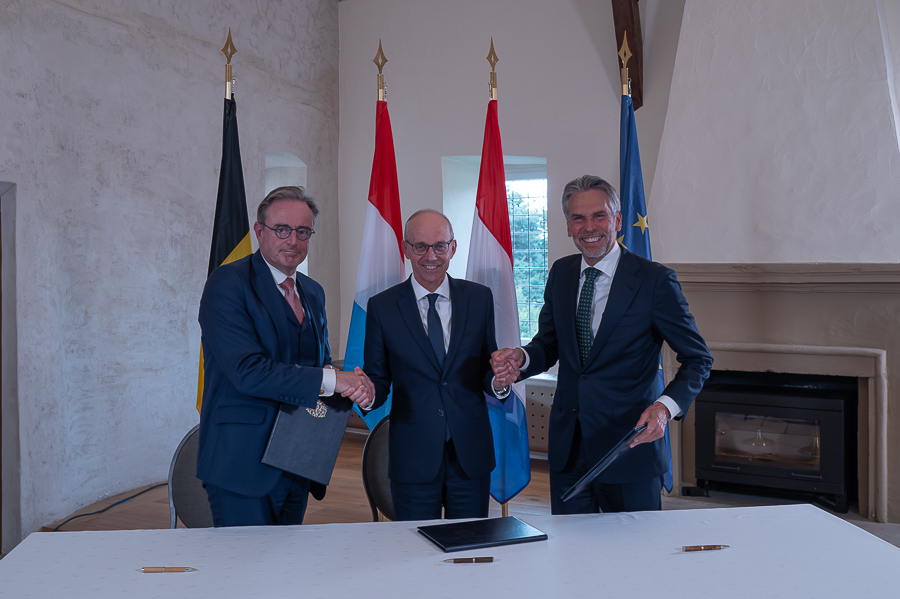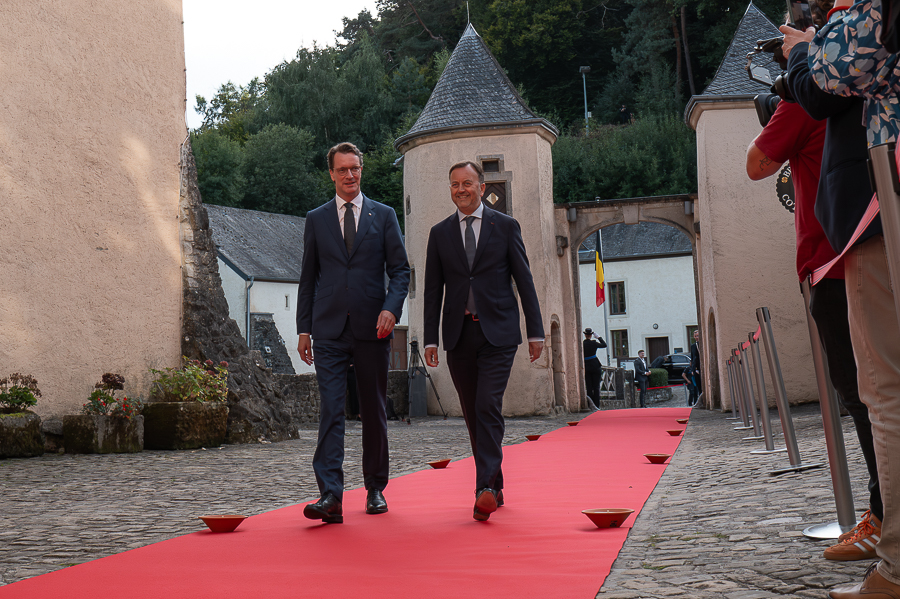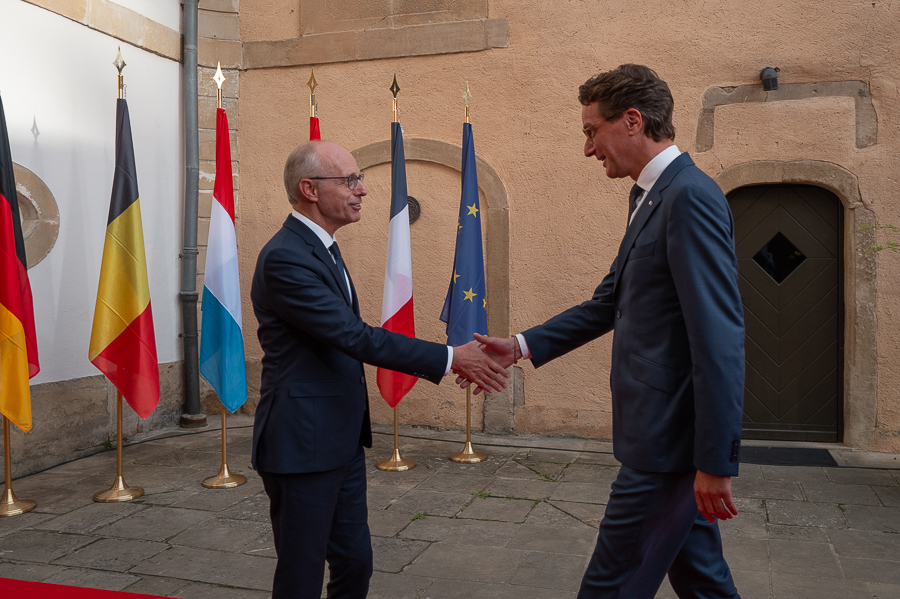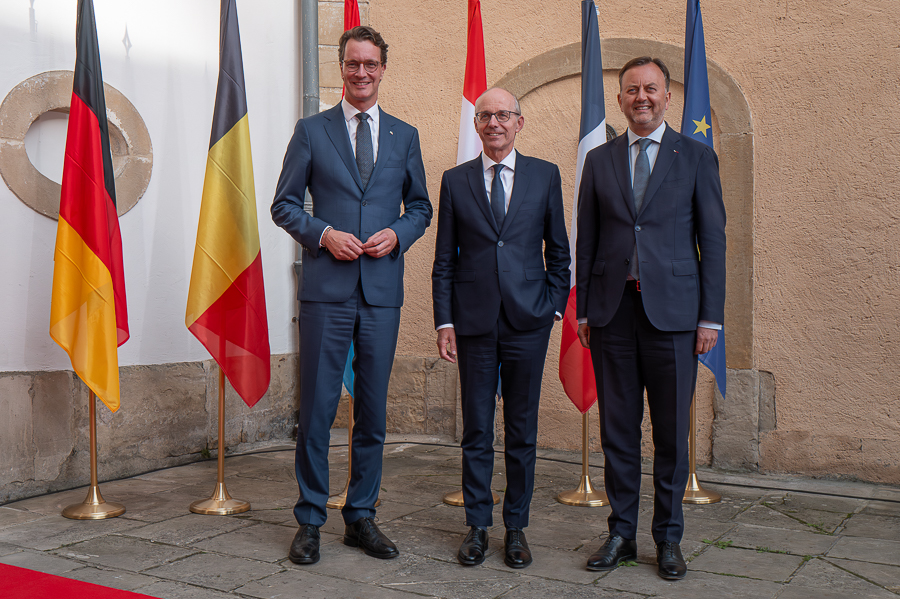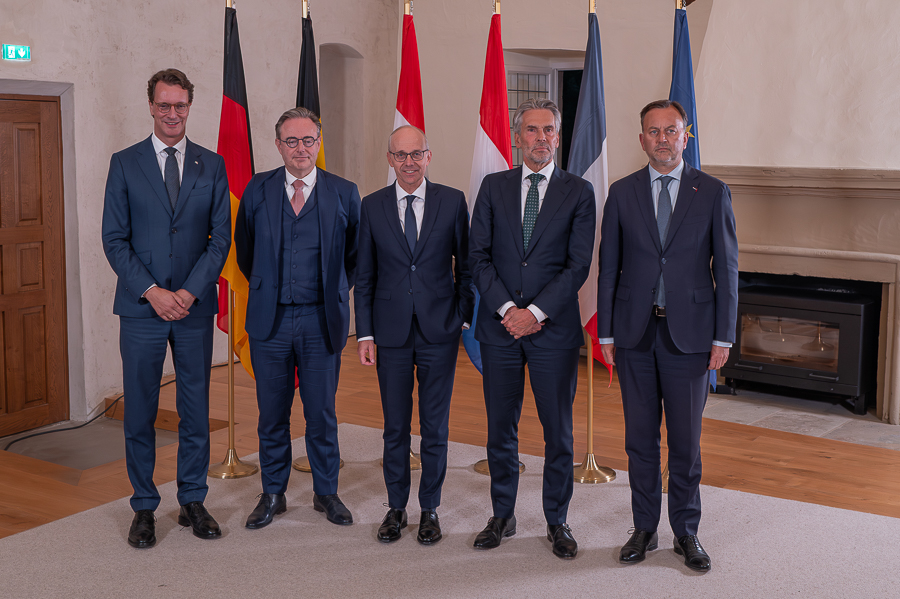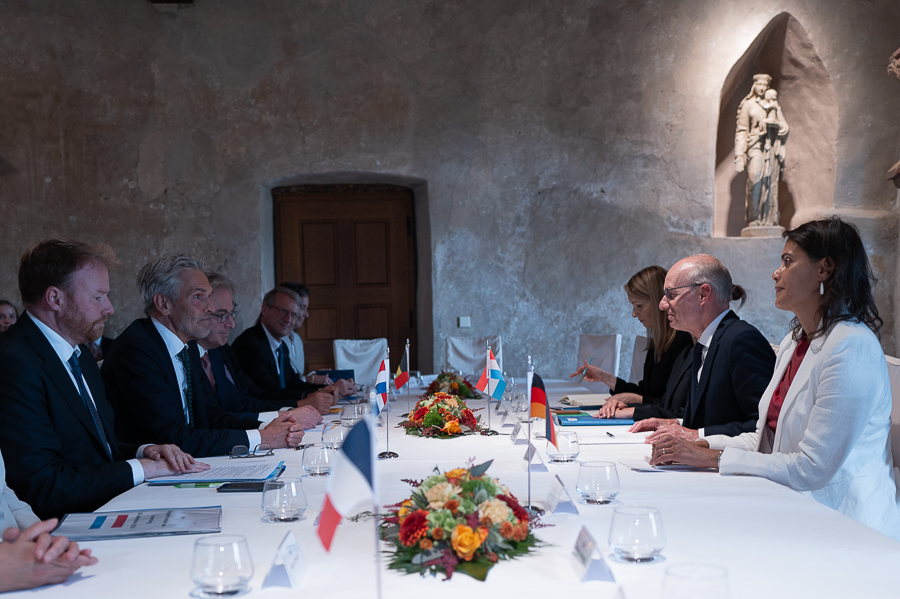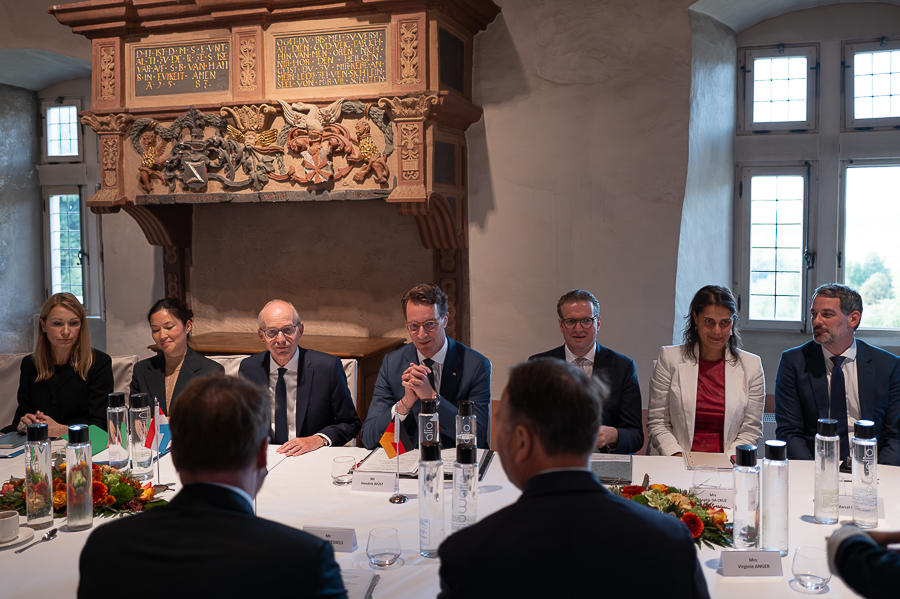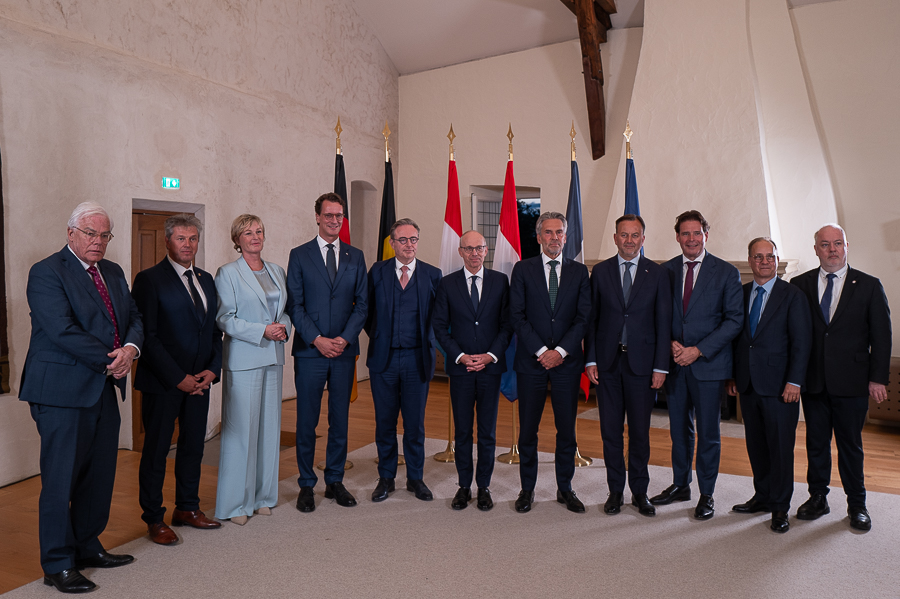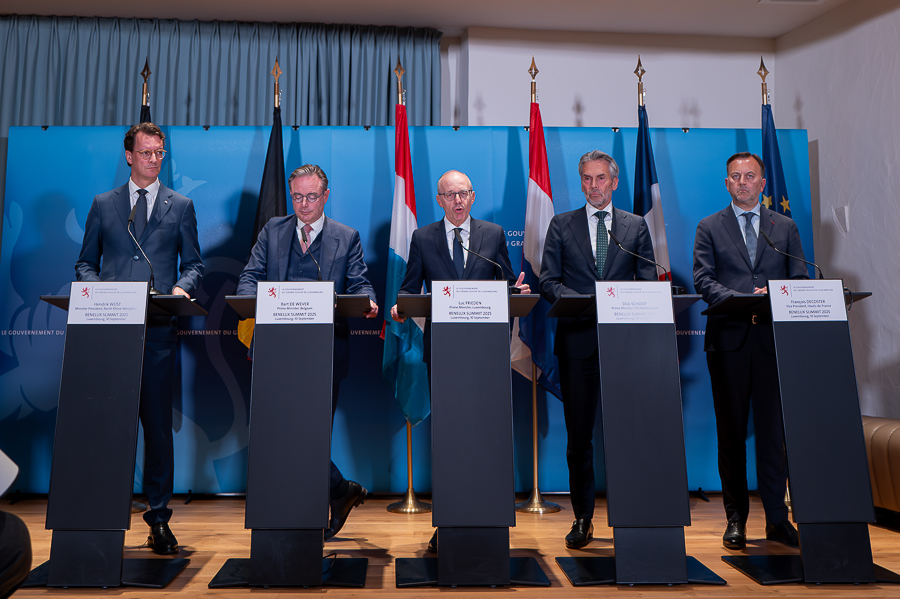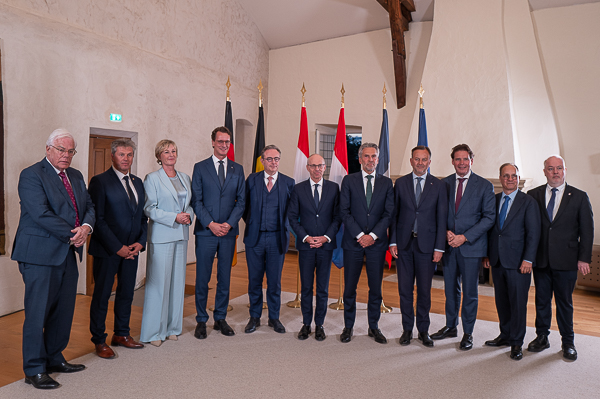 (L-R) Pim van Ballekom; Yves Evrard; Francine Closener; Hendrik Wüst; Bart De Wever, BE Prime Minister; Luc Frieden, LU Prime Minister; Dick Schoof, NL Prime Minister; François Decoster; Frans Weekers; Michel-Étienne Tilemans; Jean-Claude Meyer;
Credit: Ali Sahib, Chronicle.lu
(L-R) Pim van Ballekom; Yves Evrard; Francine Closener; Hendrik Wüst; Bart De Wever, BE Prime Minister; Luc Frieden, LU Prime Minister; Dick Schoof, NL Prime Minister; François Decoster; Frans Weekers; Michel-Étienne Tilemans; Jean-Claude Meyer;
Credit: Ali Sahib, Chronicle.lu
On Wednesday 10 September 2025, the prime ministers of Belgium, the Netherlands and Luxembourg signed a joined declaration during the BeNeLux Summit in Luxembourg, reaffirming their “enduring commitment” to the principles and values that unite their countries.
Bart De Wever (Belgium), Dick Schoof (Netherlands) and Luc Frieden (Luxembourg) pledged to continue “further strengthening the European Project, ensuring it remains a driver of competitiveness, innovation and social cohesion”.
The declaration outlined the three leaders’ shared stance on key issues:
- Ukraine: in light of ongoing Russian aggression, the prime ministers “reaffirm our steadfast support for Ukraine’s independence, sovereignty and territorial integrity within its internationally recognised borders”;
- Defence: “We reaffirm our commitment to strengthening our defence cooperation in particular through the Benelux Steering Group. As founding members of NATO, we remain strong and reliable Allies, committed to bolstering the security and defence of the Euro-Atlantic area”;
- Security, Safety & Resilience: “We reaffirm our commitment to advancing societal preparedness and resilience across the Benelux region. In an era marked by increasingly complex threats - from hybrid challenges to natural disasters - it is vital to foster unity, readiness and shared solutions”;
- Europe - Competitiveness: the leaders stressed the need to “build a more competitive European economy to guarantee long-term growth, job creation and quality of life”, highlighting the “need to build on the EU’s open strategic autonomy and further reduce strategic dependencies in critical areas like energy, technology including AI, food security and raw materials, while safeguarding open markets and international cooperation”;
- Europe - Internal Market: “We call for renewed ambition to unlock the many opportunities of our Internal Market, in service of a stronger, more competitive and resilient Union”. They stressed the importance of “clear, coherent and effectively enforced rules” for growth, said the implementation of the Savings and Investment Union “remains a priority” and underscored the need for “the smooth functioning of the Schengen area”;
- Europe - Rule of Law: the BeNeLux countries highlighted that “protecting and strengthening the rule of law ensures legal certainty and is a prerequisite for the effectiveness of the Single Market and the good functioning of the EU. We therefore support the Commission to make full use of the rule of law toolbox at its disposal and to take decisive action when the principles of the rule of law are violated. The Benelux countries reiterate their steadfast commitment to collectively uphold and promote a strong rule of law framework within our Union”;
- Europe - Enlargement: the leaders acknowledged “the importance of a merit-based and predictable EU enlargement process to be a geostrategic investment in peace, security, stability and prosperity”, adding that their countries “will continue to provide support to candidate countries in carrying out necessary reforms on their respective paths towards EU accession”;
- Benelux Union: the three prime ministers “reaffirm our deep and longstanding commitment to the Benelux Union as a cornerstone of regional cooperation, solidarity and innovation in Europe”, reflecting on past / current achievements - including partnerships with North Rhine-Westphalia (Germany) and Hauts-de-France (France) - while looking to the future: “We remain united in our belief that the Benelux model - built on trust, pragmatism and a shared future - offers lasting value to our citizens and to the European Union”.
At a joint press conference, Luxembourg’s Prime Minister Luc Frieden said current times of global “turmoil” were reminiscent of the fact that “the Benelux was created in times of turmoil”. In 1944, the governments of Belgium, the Netherlands and Luxembourg - all three in exile in London - signed a customs union agreement to strengthen post-war economic ties. Prime Minister Frieden described the BeNeLux as “a close union” based on regional cooperation. He recalled the recent 40th anniversary of the Schengen Agreement, saying: “Schengen, the idea of free movement was born in BeNeLux and is one of the symbols of the European Union”. He stressed that free movement was essential but must be paired with the cross-border fight against crime: “Cross-border movement is for honest citizens; it is not for criminals”.
Prime Minister Frieden noted that the BeNeLux Summit had covered global issues, with the leaders aligned on continued support for Ukraine and their stance on the “terrible” situation in Gaza, calling for an immediate ceasefire, humanitarian assistance and a two-state solution. They also discussed European issues, such as competitiveness and the importance of free trade agreements. Energy cooperation, including interconnected grids and green hydrogen, was also on the agenda.
Dutch Prime Minister Dick Schoof said the BeNeLux remains “a pioneer in cross-border cooperation” and “a testing ground for European cooperation”, noting that the partners are “continuously working to renew and improve our efforts, so that the BeNeLux union can keep delivering concrete results”. He added: “We stand stronger when we stand together on the international stage”.
Belgian Prime Minister Bart De Wever underlined the importance of protecting Schengen and free movement, calling open borders essential for open economies, while acknowledging the need to cooperate closely on migration. He described the BeNeLux as a potential “locomotive” for deeper European unity.
Regional partners North Rhine-Westphalia and Hauts-de-France also participated. North Rhine-Westphalia’s Minister-President Hendrik Wüst emphasised: “Cooperation is of great importance for our societies and economies”. He described trust as “a rare and valuable asset” amid global uncertainty and called for new initiatives to “close the innovation gap and boost competitiveness”, with a particular focus on artificial intelligence (AI).
Hauts-de-France Vice-President François Decoster echoed these points, stressing the need to “actively create new policies to address challenges”, for example in the discussed areas of competitiveness, education, mobility and energy. He praised the BeNeLux as a “key actor of European integration”, in the past, present and future.
The press conference concluded with a short Q&A session.

